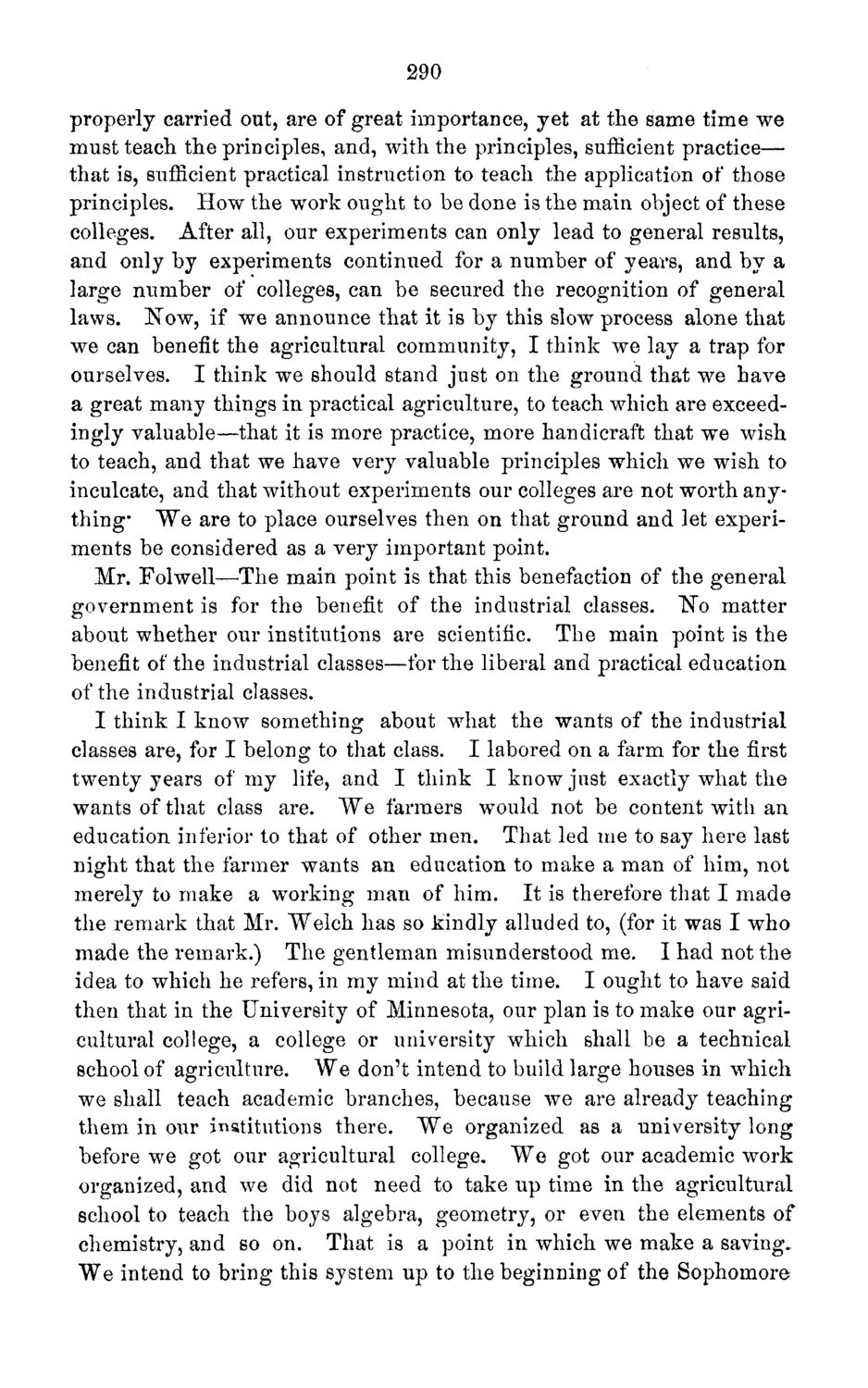| |
| |
Caption: Board of Trustees Minutes - 1871
This is a reduced-resolution page image for fast online browsing.

EXTRACTED TEXT FROM PAGE:
290 properly carried out, are of great importance, yet at the same time we must teach the principles, and, with the principles, sufficient practice— that is, sufficient practical instruction to teach the application of those principles. How the work ought to be done is the main object of these colleges. After all, our experiments can only lead to general results, and only by experiments continued for a number of years, and by a large number of colleges, can be secured the recognition of general laws. Now, if we announce that it is by this slow process alone that we can benefit the agricultural community, I think we lay a trap for ourselves. I think we should stand just on the ground that we have a great many things in practical agriculture, to teach which are exceedingly valuable—that it is more practice, more handicraft that we wish to teach, and that we have very valuable principles which we wish to inculcate, and that without experiments our colleges are not worth anything* We are to place ourselves then on that ground and let experiments be considered as a very important point. Mr. Folwell—The main point is that this benefaction of the general government is for the benefit of the industrial classes. T^o matter about whether our institutions are scientific. The main point is the benefit of the industrial classes—for the liberal and practical education of the industrial classes. I think I know something about what the wants of the industrial classes are, for I belong to that class. I labored on a farm for the first twenty years of my life, and I think I know just exactly what the wants of that class are. We farmers would not be content with an education inferior to that of other men. That led me to say here last night that the farmer wants an education to make a man of him, not merely to make a working man of him. It is therefore that I made the remark that Mr. Welch has so kindly alluded to, (for it was I who made the remark.) The gentleman misunderstood me. I had not the idea to which he refers, in my mind at the time. I ought to have said then that in the University of Minnesota, our plan is to make our agricultural college, a college or university which shall be a technical school of agriculture. We don't intend to build large houses in which we shall teach academic branches, because we are already teaching them in our institutions there. We organized as a university long before we got our agricultural college. We got our academic work organized, and we did not need to take up time in the agricultural school to teach the boys algebra, geometry, or even the elements of chemistry, and so on. That is a point in which we make a saving. We intend to bring this system up to the beginning of the Sophomore
| |